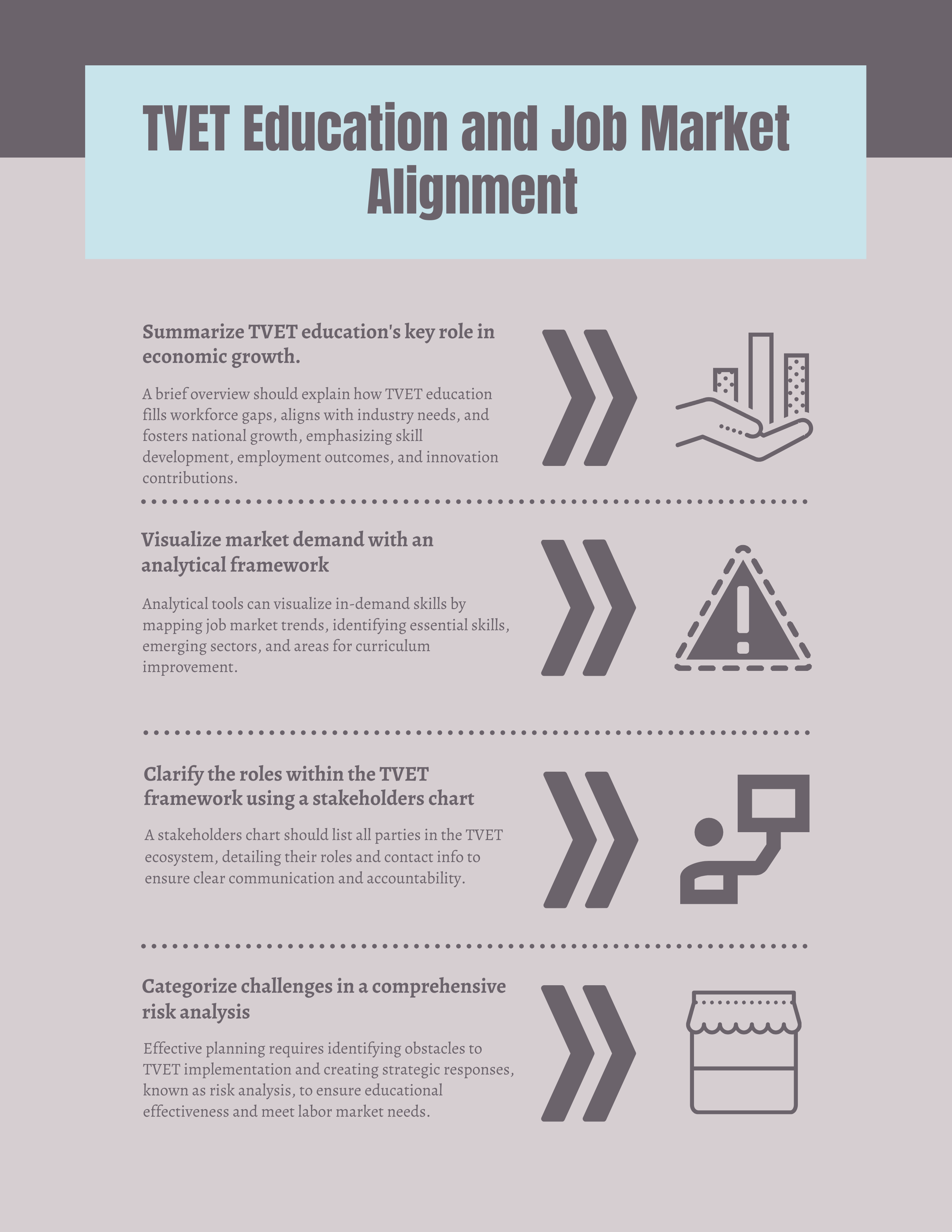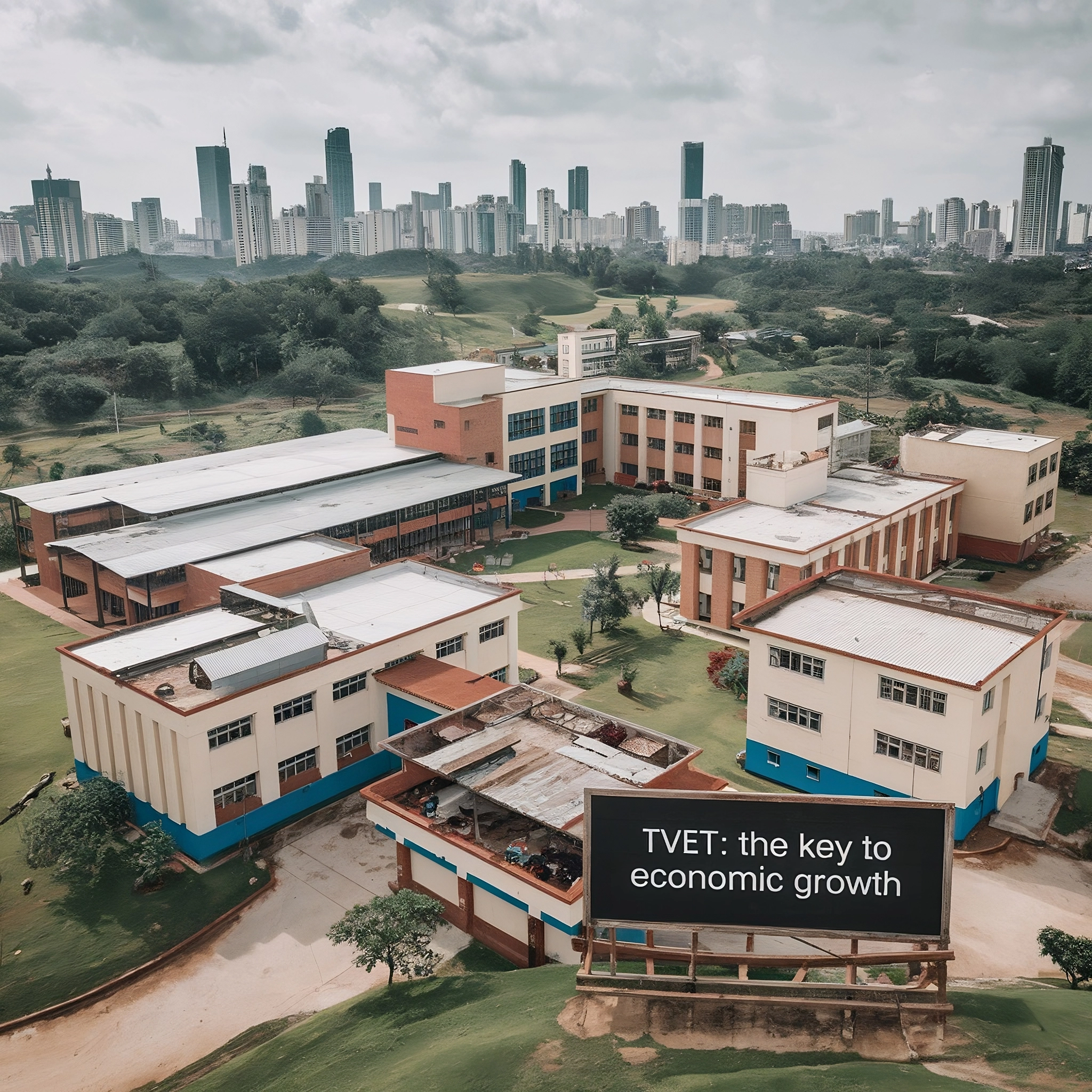1. How effectively does TVET education in Trinidad and Tobago align with labour market demands and contribute to national economic and social development?
TVET (Technical and Vocational Education and Training) education in Trinidad and Tobago plays a critical role in addressing the skills gap and enhancing workforce readiness. However, its alignment with labor market demands can be inconsistent due to outdated curricula, limited industry involvement, and insufficient data on emerging trends. While TVET institutions aim to produce a skilled workforce, gaps exist in adequately preparing individuals for high-demand sectors like technology, renewable energy, and advanced manufacturing. Strengthening this alignment can significantly enhance the country’s economic and social development by reducing unemployment, fostering innovation, and supporting national diversification efforts.
2. Why do you think doing research in this area is important?
Research in this area is crucial because it bridges the gap between education and employment. It provides actionable insights into how TVET systems can better equip students with relevant skills that meet industry standards, fostering both individual career growth and national economic progress. Moreover, it highlights areas where investment and reform are needed, such as updating programs, expanding access, and integrating sustainability-focused skills. This research ensures that Trinidad and Tobago remains competitive in the global economy while addressing local socio-economic challenges, including youth unemployment and underemployment.
3. What have you enjoyed learning about so far?
One of the most engaging aspects of this research is exploring the interplay between education, labor market trends, and national development goals. Understanding how TVET systems can be designed to not only meet immediate industry needs but also future-proof the workforce against technological and economic shifts has been particularly fascinating. Additionally, analyzing real-world examples of successful TVET programs globally and their adaptation to the local context in Trinidad and Tobago has provided valuable learning opportunities.
4. To what extent are they important to your research?
These SDGs are integral to the research as they provide a framework for assessing how TVET aligns with broader goals of equitable education, economic resilience, and social inclusivity. SDG 4 emphasizes the need for relevant, skill-based education, which is the foundation of TVET. SDG 8 highlights the role of TVET in creating pathways to meaningful employment, while SDG 9 and SDG 10 stress the importance of innovation, infrastructure, and equitable opportunities in fostering a diversified and sustainable economy. By aligning the research outcomes with these SDGs, the study contributes to global and national development priorities, ensuring its relevance and long-term impact.
5. What Sustainable Development Goals (SDGs) are relevant to your study?
Several SDGs are directly relevant to this study, including:
- SDG 4: Quality Education – Ensuring inclusive and equitable education and promoting lifelong learning opportunities.
- SDG 8: Decent Work and Economic Growth – Promoting sustained, inclusive, and sustainable economic growth, full and productive employment, and decent work for all.
- SDG 9: Industry, Innovation, and Infrastructure – Building resilient infrastructure, promoting inclusive and sustainable industrialization, and fostering innovation.
- SDG 10: Reduced Inequalities – Reducing inequalities within and among countries by improving access to skills and training for marginalized groups.




2 responses to “How effectively does TVET education in Trinidad and Tobago align with labour market demands and contribute to national economic and social development?”
Future-proofing the workforce is important, especially in the wake of the strong AI currents that have been causing disruption. I don’t know if you can ever fully future proof but the more information people have, the better decisions they can make.
This topic is very relevant in the work landscape and educational system within Trinidad and Tobago. Our educational focus is highly academic leaving a gap within skilled labourers that are essential to every economy. It would be very interesting to see the outcome of this study.